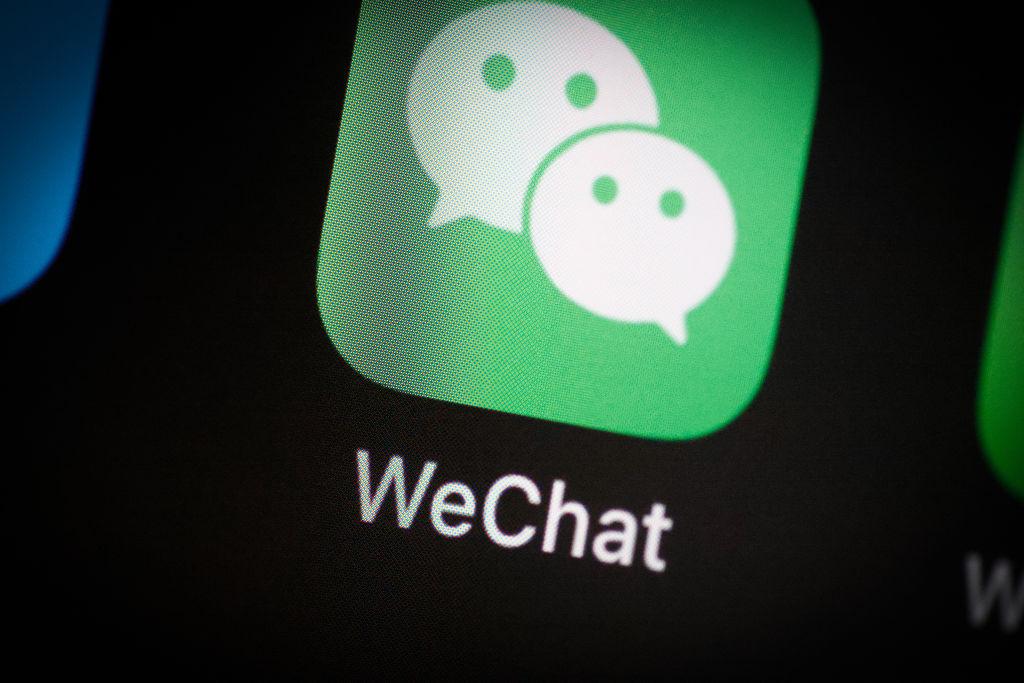
The loss of control of Prime Minister Scott Morrison’s account on the Chinese social media app WeChat should not have come as a surprise to the government.
As I warned in multiple media appearances in 2019, in a research paper on WeChat and TikTok in September 2020, in The Strategist in December 2020 and ad nauseam on Twitter, the decision to have Morrison’s account registered under the name of a Chinese citizen was always risky and ill-advised.
The prime minister’s office has known since at least April 2019 that, because it was registered to an unnamed man in Fujian province, his account was actually in breach of the platform’s terms and conditions. That was always an untenable position. Any account set up in this way could be shut down at a moment’s notice, which was one of the risks I explicitly warned about and what has now happened.
We now know that the man from Fujian who ultimately controlled the account is a certain Mr Ji (纪), based on the alert that the 75,000-odd followers of the account received to notify them that it was being transferred and rebranded as ‘New Life for Chinese Australians’ (澳华新生活).
But there’s plenty we still don’t know about Ji, including his full name and the name of the Chinese agency that the prime minister’s office hired to run the account. Most importantly, we don’t know what prompted Ji to sell the account to Huang Aipeng of Fuzhou 985 Information Technology Ltd. For his part, Huang claims that he bought the account because it had lots of followers and, rather unconvincingly, that he had no idea that it was the account of Australia’s prime minister.
A couple of possible scenarios as to Ji’s motivation come to mind. First, it’s possible that he decided that the risk he was being exposed to was outweighed by the prospect of cashing out and selling the account and the access to the mostly Chinese-Australian followers it had accumulated.
This individual had been put in an invidious position. By having his name connected to Morrison and his WeChat posts, Ji was running the risk of being detained by Chinese authorities. For what it’s worth—and that’s not much considering the reputation of the rag—one propagandist at the Global Times, citing an unnamed source, claimed there was a falling out between Ji and the agency.
Second, it’s possible that Ji and the unnamed agency he works for were leaned on by one or more organs of the Chinese party-state to offload the account in order to embarrass the prime minister and hamper his efforts at re-election.
On balance, it’s this second scenario—that a decision had been made by the Chinese Communist Party to deplatform Morrison—that seems much more likely. How else can we explain WeChat parent company Tencent’s intransigence when the PM’s office reached out to it to try to regain control of the account?
The government says it repeatedly tried to regain control of the prime minister’s account after it lost control of it in July, but Tencent refused to respond to its requests, according to the ABC. Tencent would have been well within its rights to simply state, as it did this week, that the issue would be handled in accordance with its rules, but the company decided instead to snub the PM.
No matter which is the case, each scenario illustrates how Morrison and his government are viewed in the People’s Republic of China right now. The signal from the upper echelons of the CCP has been clear for quite some time: it’s open season on the Australian government and nobody will be penalised for slighting them. It wouldn’t be the first time that the Liberal Party has been interfered with on WeChat. Morrison was censored by the platform in December 2020 and, just days later, the Victorian Liberal Party’s account was stripped of its name.
There’s no evidence that I’m aware of to indicate that the Labor Party has had as bumpy a ride. It had appeared that while Liberal accounts have been interfered with a number of times on the platform, Labor had come to an arrangement with Tencent to allow the party and its politicians to have full control over their accounts.
But appearances can be deceptive, and newly emerged records of Labor Leader Anthony Albanese’s WeChat account suggest that it is also registered to an unnamed Chinese national, this time a woman from Jiangsu province. That means Albanese is in exactly the same boat Morrison was in.
If Albanese is sincere about how, if elected, he intends to approach relations with China—an approach which, at least on paper, doesn’t differ vastly from the current government’s—then he should fully expect to be on the receiving end of the same type of treatment from Tencent at some point in the future. On Tuesday, Albanese told the National Press Club that he didn’t blame the government for the deterioration in Australia’s relationship with China and expects things will remain difficult if Labor wins the election.
It would be tempting for Labor to do as the government did and ignore the risks to Australian democracy and national security that come with using China-based social media apps when the timing didn’t suit it. It’s not just WeChat, by the way. Just months after Morrison warned that TikTok ‘connects right back to China’, he joined it.
Let me put it bluntly: any politician or political party that sees no problem with treating WeChat as a normal social media platform is tacitly compliant with state-sponsored interference in the upcoming election. It’s well beyond time that both the Liberal and Labor parties set their own immediate political needs aside and mutually agree to stop using WeChat as a campaign channel and to start work on bipartisan legislation to properly regulate this influential platform.